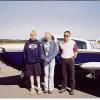More excitement at FL 19.5 with my Rocket
-
Members Online
- warrenehc
- Pinecone
- 00-Negative
- buddy
- hammdo
- Blue moon
- Florian Guthardt
- 65MooneyPilot
- Aerodon
- gdwinc
- AviH
- milotron
- Ragsf15e
- WilliamR
- kortopates
- spistora
- 47U
- TangoTango
- Ibra
- Igor_U
- ProtoFly
- Parker_Woodruff
- Jason 1996 MSE
- redbaron1982
- Larry
- Shrobby
- Utah20Gflyer
- Rwsavory
- midlifeflyer
- PT20J
- M20F
- CL605
- dkkim73


Recommended Posts
Join the conversation
You can post now and register later. If you have an account, sign in now to post with your account.